Kathmandu : More than 20 locals from Badikhel, Ward No. 4 of Godawari Municipality in Lalitpur, are busy attending a training session on bamboo waving products at the soprts hall. The locals, who have been working with bamboo for years, are learning new and attractive designs from artisans who have come from Qingshen, a small and beautiful county of Sichuan China, to teach them. These Chinese volunteers are training the Badikhel locals in such a way that within just one week of starting the program, they have already begun crafting items in new designs.
Mahesh Kumar Pahari from Badikhel has been working with bamboo for the past 10 years. From building bamboo cottages to making traditional bamboo baskets and winnowing trays, Mahesh was thrilled to hear that trainers from China were coming to teach them how to create decorative bamboo weaving items. “Working with bamboo is our ancestral trade,” he said. “But we couldn’t turn it into a proper business. In recent times, there’s been a growing demand for bamboo products, but without the skills to create new designs, we couldn’t compete in the market. Now, the Chinese techniques being taught in this training have shown us how to refine our work. While the basic process of crafting bamboo items was similar, we didn’t know how to give them a polished finish. This training has taught us how to make bamboo products more attractive.” Mahesh is learning with the intention of sharing the knowledge gained from this 15-day training with others in his community.
Among the trainees is 16-year-old Samina Pahari. Her father has also been involved in bamboo crafting for years. Although her father initially enrolled in the training, he sent Samina instead, believing the younger generation could learn faster. Having just finished her Class 9 exams, she saw the bamboo training in her village as an opportunity. “My father has been making bamboo items for many years. We were always busy with studies and never got the chance to learn. But when I heard that a training program from abroad was being held in our village to teach new bamboo crafting techniques, I wanted to make use of my school holidays and learn a skill,” she said. “At first, it was hard because I’d never done this work before, but I’m confident I can learn in 15 days. I’m trying to master it so I can teach other family members too.”
The enthusiasm among all the participants in this first-of-its-kind international training in their ward is evident – they are focused on learning as quickly as possible.
Li Yinhai, a Chinese trainer from Sichuan Province’s Qingshen County, is impressed by Samina’s desire to learn a skill alongside her studies. Mr. Li, the owner of “Qingshen Jiewaizhu Bamboo Wood Products Co. Ltd.,” is a skilled bamboo artisan and has come to Nepal as the lead instructor. Having never visited Nepal before, he was curious about what kind of bamboo products could be made from local materials and whether Nepalis would be able to learn the craft. But after starting the training, he was amazed. Why wouldn’t he be? It took the Nepali trainees just two days to learn how to make bamboo lanterns – a popular item in China – in the same style. “The dedication Nepalis show toward learning a skill is truly inspiring,” Mr. Li said. “Nepalis are hardworking. Even this short training will greatly help them become more self-reliant in the future. These trainees will become masters themselves and teach others.”
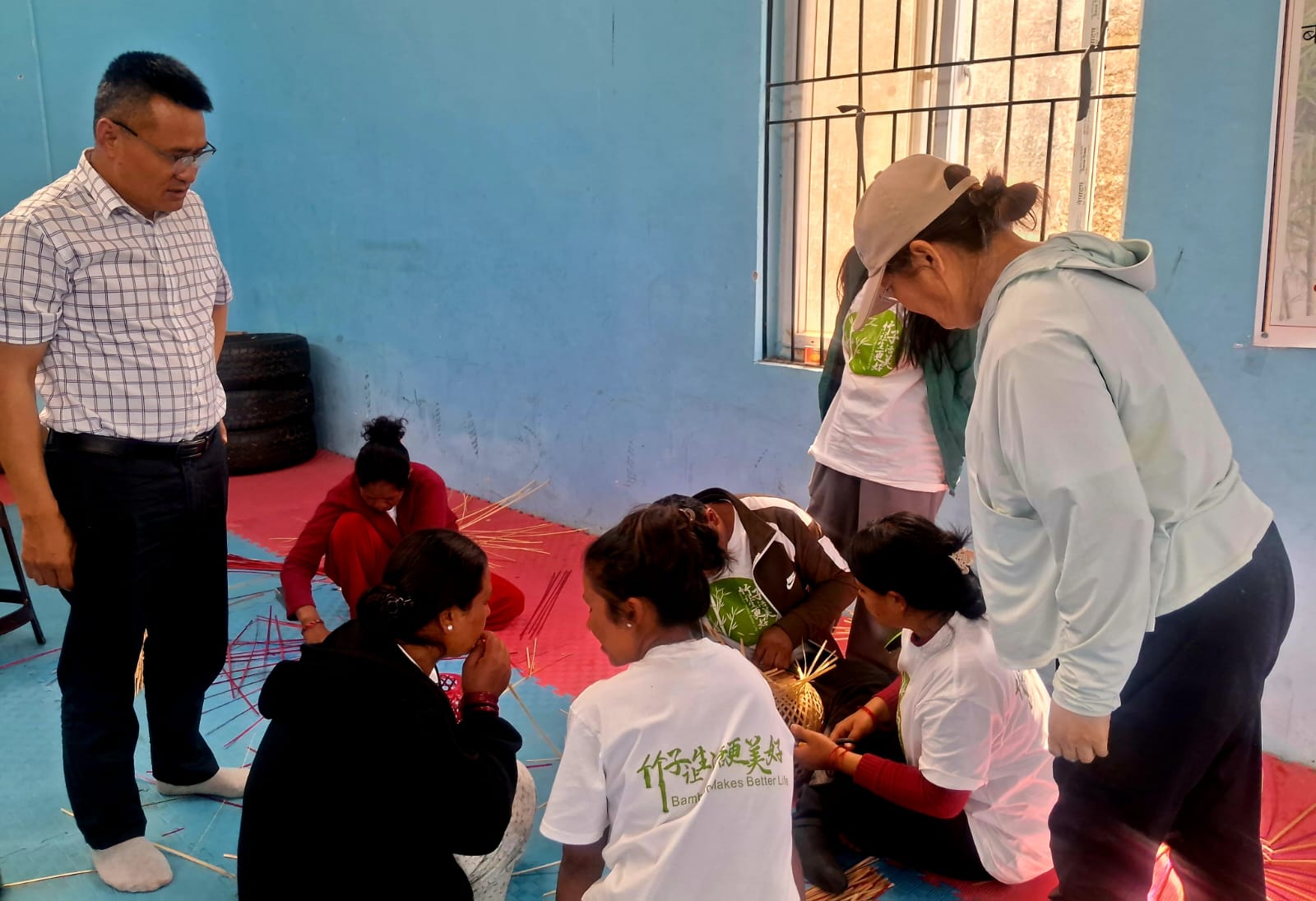
Rather than wandering in search of jobs, having a skill in hand can lead to self-reliance. As the saying goes, “If your hands aren’t empty, your mouth won’t be either” – meaning that with a skill, one need never go hungry. Baburam Pahari, another trainee from Badikhel, believes that bamboo waving products like lanterns, which are in good demand in the market, can be a source of income. That’s why he’s putting his full effort into the training. “Until now, we made bamboo items in our own traditional way. But this training has introduced us to new techniques and designs. Lanterns are now being hung in hotels, restaurants, and homes. I’m hopeful that the items we make will find a good market in the future,” he said.
The training has more female participants than male. Radhika Pahari, one of the trainees, helps her father-in-law, who also works with bamboo. Her curiosity to learn how to make new bamboo items brought her to the training center. Previously, she assisted in making traditional items like baskets and winnowing trays, but now she wants to work independently. She finds the Chinese teaching methods easy and enjoyable, though she admits understanding their instructions can be challenging due to the language barrier. “It was tough to learn at first, but my hands are gradually getting the hang of it. As I keep learning, I feel confident that I can make many bamboo items,” she said.
Nar Bahadur Pahari, a local who came to observe the training, has been working with bamboo for 40 years. Though he didn’t get a spot in the program, he plans to learn from those who did. “Sales of bamboo products had slowed down recently, but now they’re picking up again,” he said. However, he’s worried that the younger generation isn’t learning the craft. “Educated people have stopped working with bamboo. With the trend of going abroad, there’s a shortage of bamboo artisans. If they learned this skill, they could do well right here in the country.”
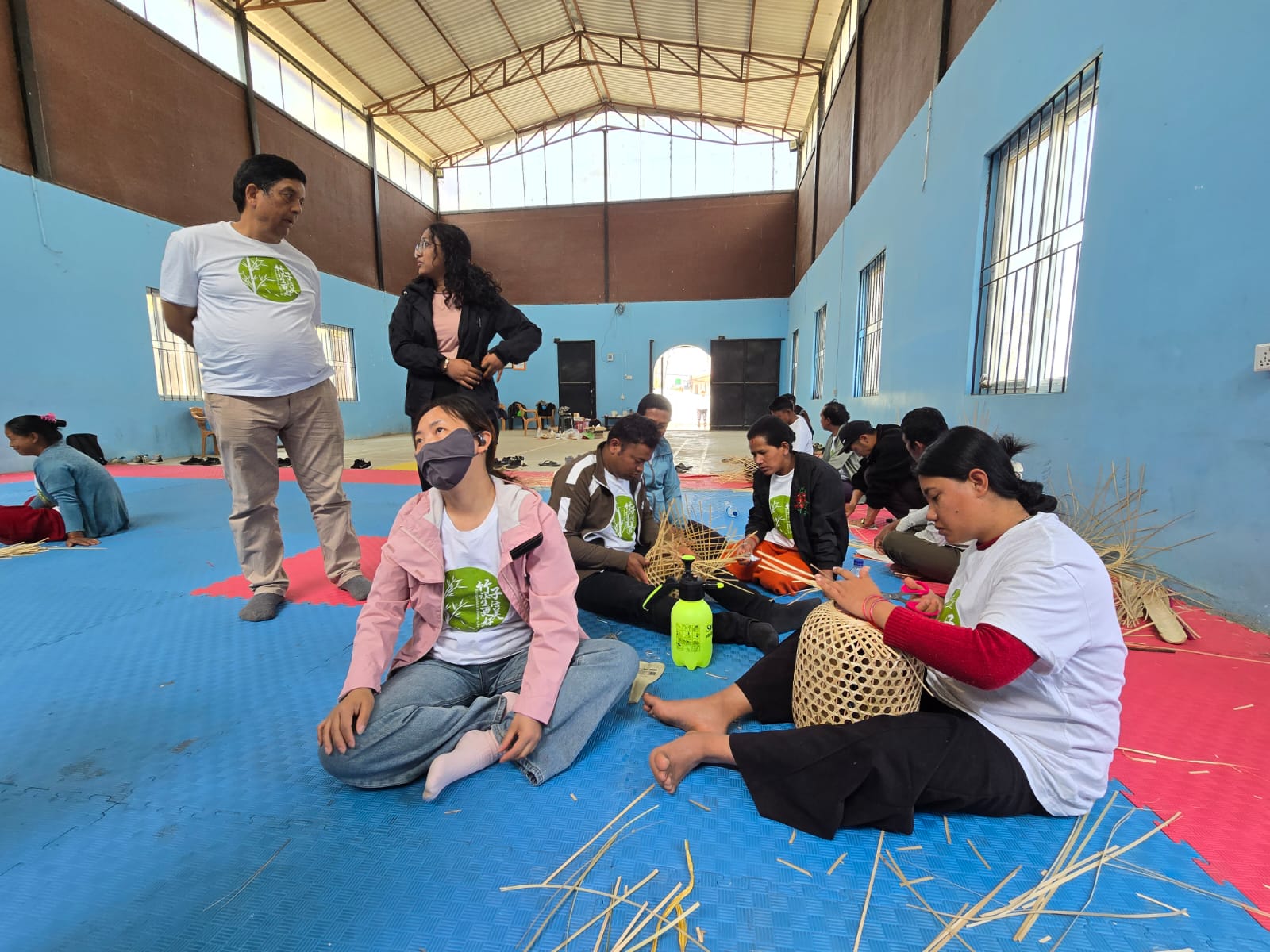
Shiv Kumar Basnet, chairperson of Social Development Vision in Lalitpur, believes the training will help those in Godawari who rely on bamboo for their livelihood become more professional. He’s confident there won’t be a shortage of demand for the bamboo products made by locals. “The market will surely demand bamboo items made with new techniques and designs, which will boost the income of bamboo artisans,” he said.
For the Pahari and Nagarkoti communities of Badikhel, bamboo waving is an ancestral trade. The enthusiasm they’ve shown in learning during the training suggests that with better programs, this community could become self-reliant through bamboo products. Ma Zhijian, chairman of the Goodwill Foundation based in China’s Xizang Autonomous Region, which supported the training, sees immense potential for bamboo in Nepal. Having known Nepal for 40 years, Mr. Ma is excited by the training’s outcomes. “Initially, I was unsure if Nepali bamboo could be used effectively, but it’s clear that good products can be made from it. Instead of importing paper for bamboo lanterns, we should use Nepal’s high-quality handmade paper,” he suggested.
Using bamboo as an alternative to plastic is a significant step toward promoting green development. In a country like Nepal, affected by the vicious cycle of climate change, maximizing bamboo use could enhance environmental beauty. The skills and artistry related to bamboo not only provide economic benefits but also contribute to preserving environmental and cultural heritage. “Just as a bamboo-based green journey transformed the future of Qingshen County in Sichuan Province, it can do the same for Godawari,” Mr. Ma concluded.
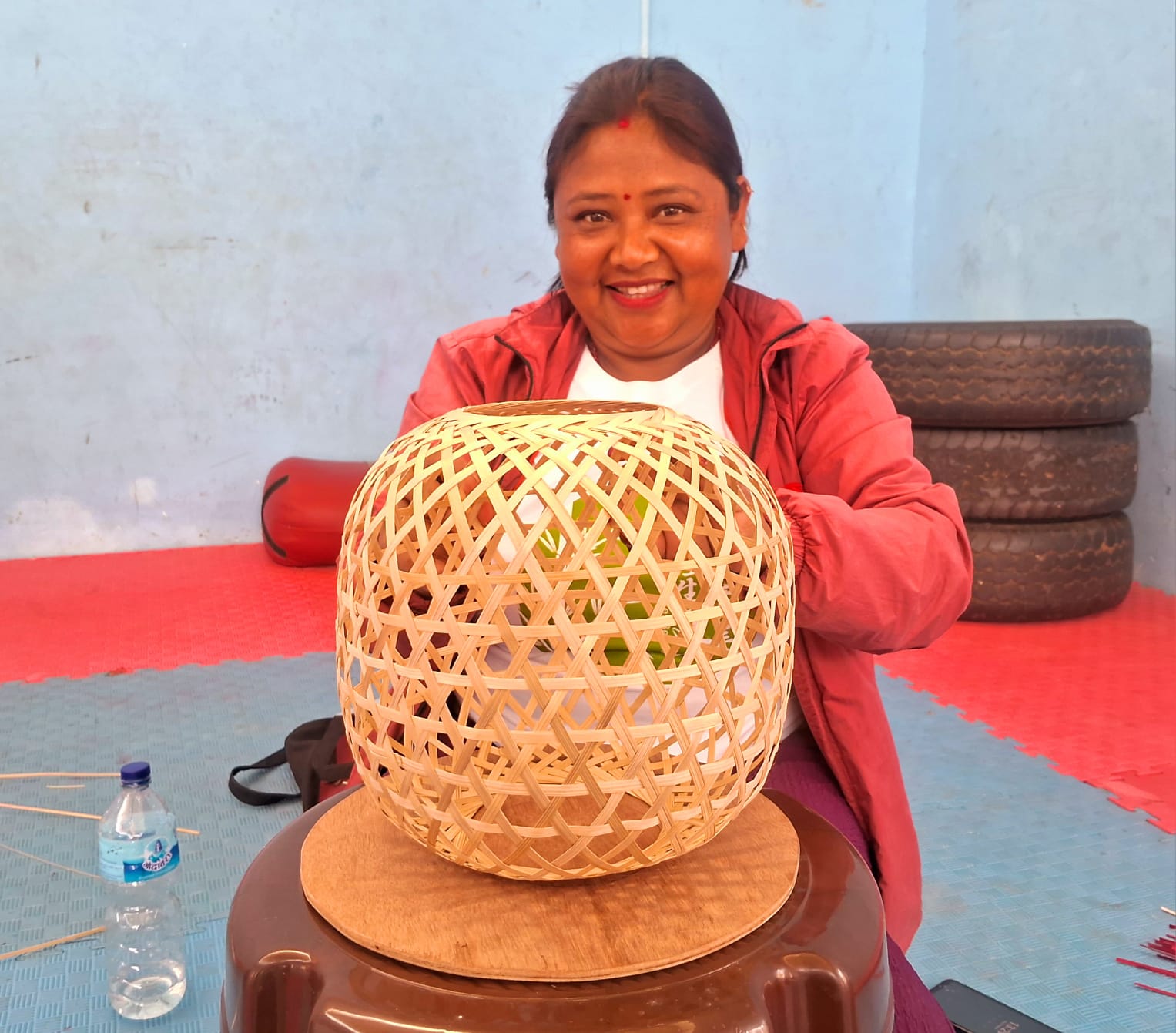
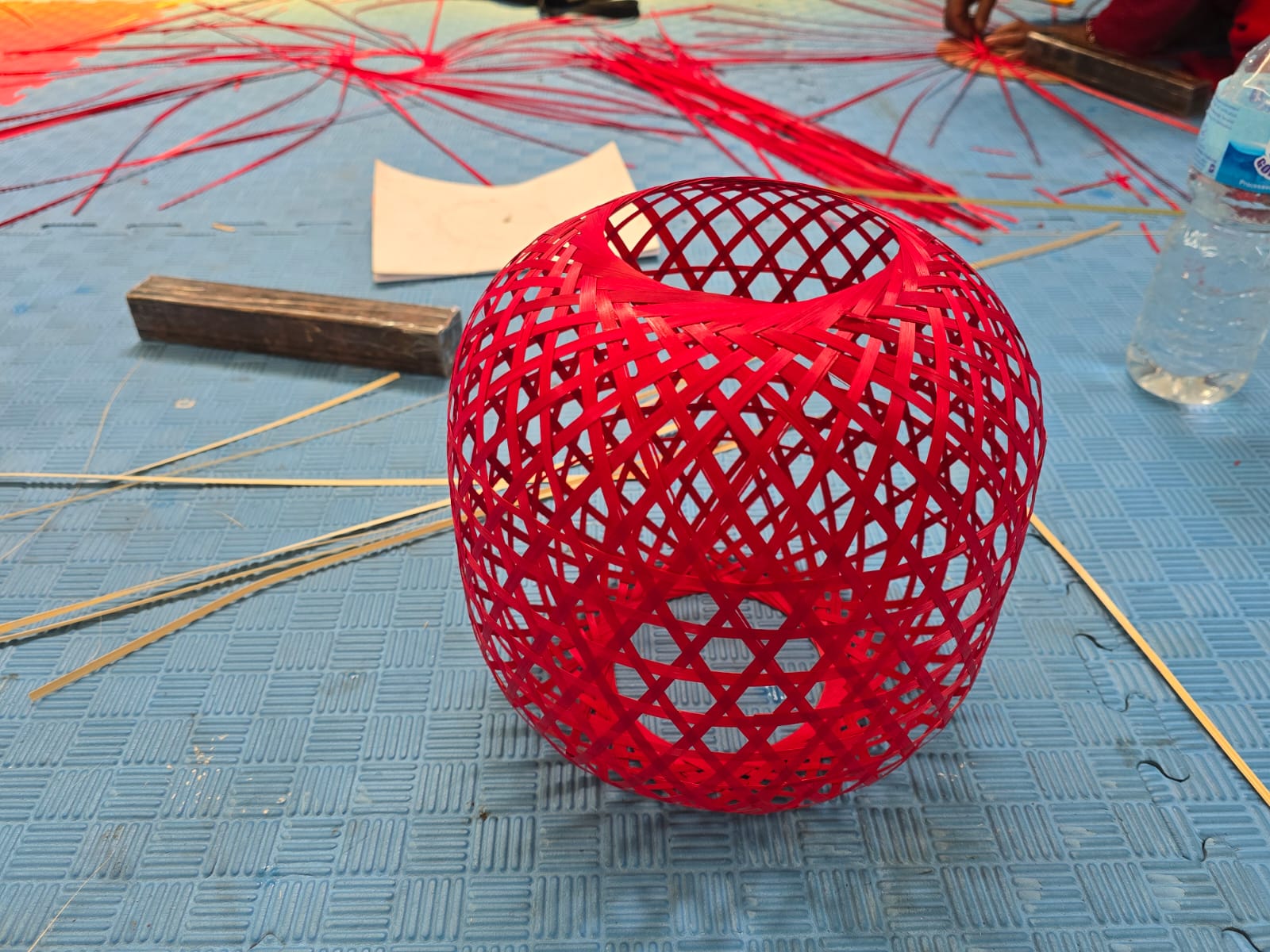





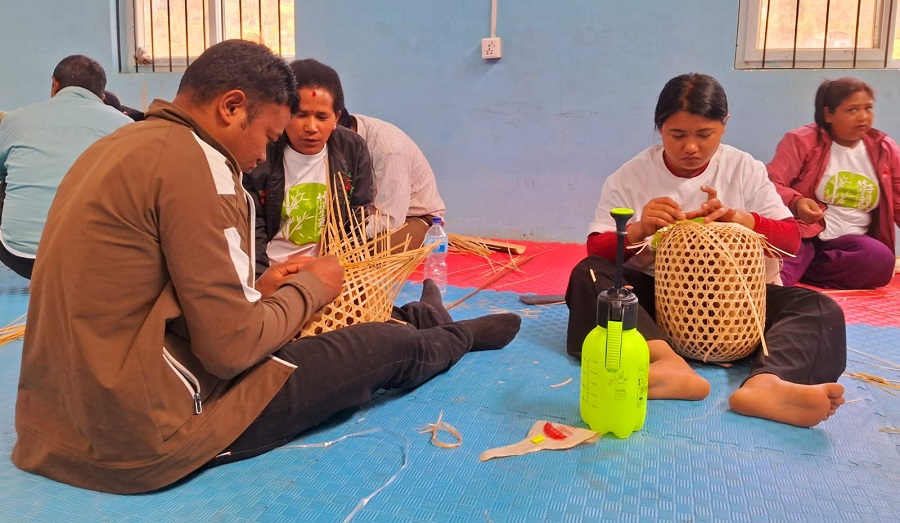




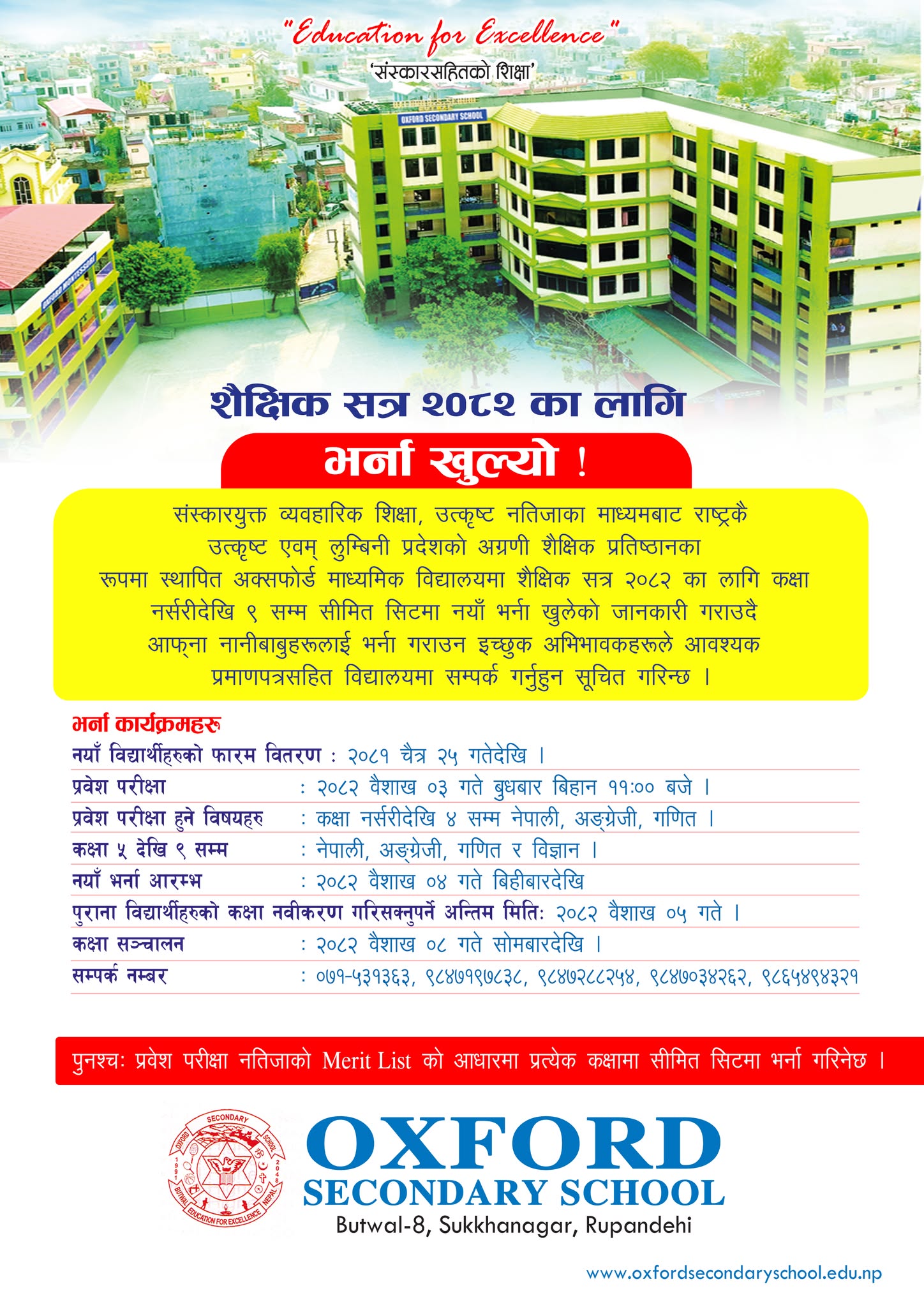





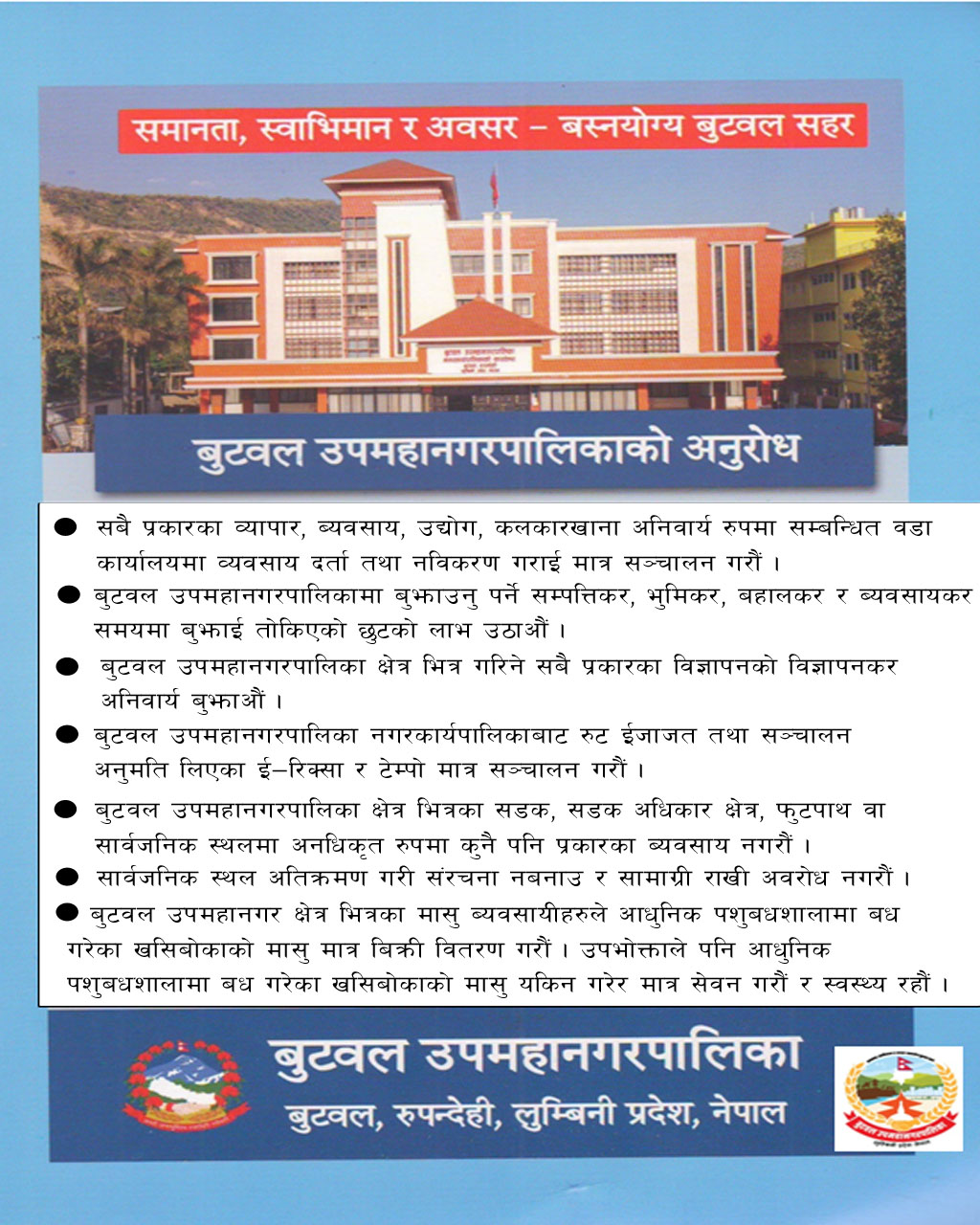







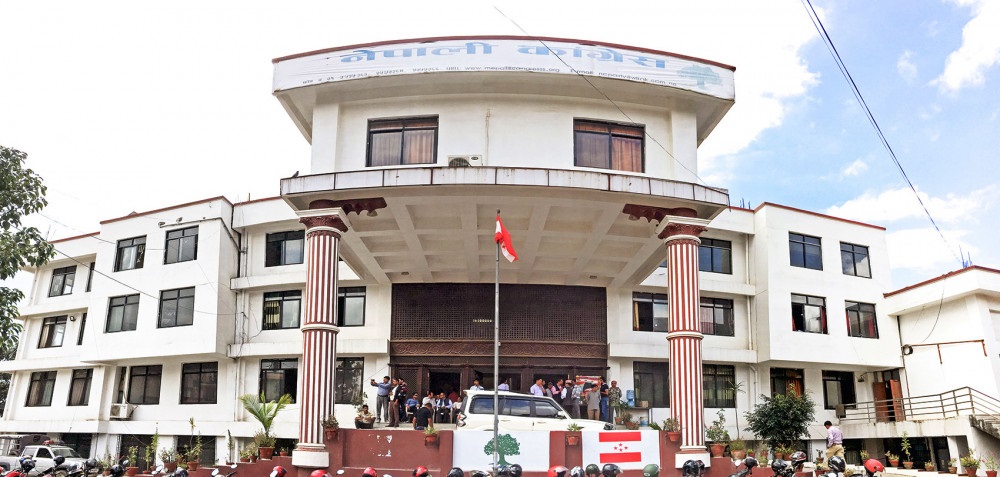

प्रतिक्रिया